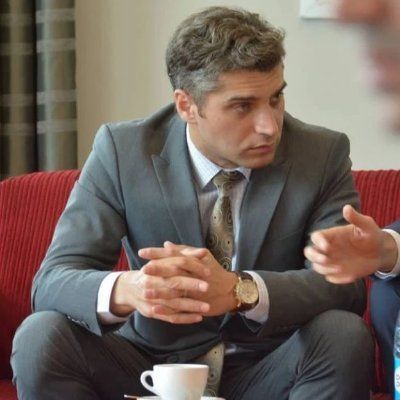Armenia’s struggle for post-conflict future meets Church resistance

As Armenia edges closer to its next parliamentary elections, a dangerous rift is widening between Prime Minister Nikol Pashinyan’s government and the Armenian Apostolic Church (AAC). What began as a quiet tug-of-war over moral authority has evolved into an all-out political confrontation, the one that now threatens not only the stability of Armenia’s fragile democracy but also its prospects for peace with Azerbaijan.
Pashinyan, once seen as the only political figure trusted by a weary and disillusioned public, faces an opposition that has learned to hide behind the cross. The Church, long regarded as the moral compass of the Armenian nation, has become the new vehicle for Armenia’s nationalist and revanchist forces. The arrest of Archbishop Bagrat Galstanyan, the leader of the so-called “Holy Struggle” movement, marks a turning point in this escalating conflict. His detention has emboldened the opposition and deepened the perception that Armenia’s spiritual leadership has transformed into an active political player.
At the heart of this struggle lies one of the most contentious issues in Armenia’s modern history: peace with Azerbaijan. In recent months, Pashinyan has signalled a pragmatic willingness to move towards a final peace agreement, acknowledging that Armenia cannot afford another generation of hostility. But this shift has enraged the Church and the nationalist opposition, who see any compromise with Baku as a betrayal of the nation’s honour.
The clergy accuse Pashinyan of making decisions that favour Azerbaijan rather than defending Armenian interests. They claim that peace would humiliate the country, framing reconciliation as weakness and diplomacy as surrender. Such rhetoric is not only short-sighted but also dangerously incendiary. The Church, which commands immense influence among the conservative layers of Armenian society, is fuelling a revival of revanchist thinking. The same mindset that plunged the region into conflict three decades ago.
For the Apostolic Church, peace is portrayed not as a moral imperative but as a moral failure. This inversion of ethics, turning forgiveness into capitulation, is being strategically exploited by Armenia’s opposition, which recognises that the pulpit reaches where political speeches cannot. As the election approaches, sermons and sanctuaries have become platforms for political mobilisation, rallying the public around an outdated vision of Armenia’s “national destiny”.
The timing could not be more critical. Armenia is due to hold parliamentary elections within six months, and most probably earlier, a constitutional referendum before a peace agreement. Beneath the surface of these political events lies a fundamental legal and moral dilemma: in order to formalise a peace treaty with Azerbaijan, Armenia’s constitution must be amended to remove its territorial claims embedded in the preamble. Pashinyan’s administration understands this all too well. It knows that no lasting peace can coexist with constitutional provisions that deny Azerbaijan’s sovereignty. Yet the prime minister also knows that confronting this issue openly could provoke political suicide before the elections.
This is why the Church’s interference poses such a serious threat. By inflaming nationalist sentiment and presenting itself as the guardian of “Armenian dignity”, the AAC is positioning itself as the true defender of the nation’s soul against what it portrays as a weak and compromised government. But the Church has neither the political expertise nor the democratic legitimacy to govern. Its growing alliance with opposition forces is not a moral crusade but a desperate attempt to preserve its influence in a rapidly secularising society.
Armenia today stands on a knife-edge. Pashinyan’s supporters, though still significant, are weary of the constant political turbulence, yet they remain the only constituency capable of steering the country towards modernisation and peace. The alternative, a Church-backed opposition rooted in resentment and nostalgia, offers no real plan beyond perpetual defiance. The danger lies not just in political regression but in the moral corrosion of national discourse, a return to the fatalism that once justified war as destiny.
Those who rally behind the Church’s revanchist rhetoric fail to see the trap it sets. They believe that clinging to enmity will somehow restore Armenia’s strength. In truth, it will only ensure the country’s continued isolation and economic stagnation. A nation cannot build its future while worshipping the ghosts of its past. The Church’s message of resistance may stir emotion, but it offers no answers to the real challenges Armenia faces from poverty and depopulation to its deteriorating security environment.
Pashinyan’s government, for all its flaws and missteps, at least recognises that peace is not capitulation but survival. It is the only path through which Armenia can secure its sovereignty, normalise its borders, and begin rebuilding trust with its neighbours. Yet this path demands political courage and public maturity, qualities undermined by those who would rather reignite old wars than confront new realities.
What is unfolding in Armenia is not merely a political contest between government and opposition; it is a civilisational struggle between the secular state and a theocratic nostalgia. The Church, embittered by its loss of influence, seeks to reassert its dominance by draping politics in sacred robes. But the world has moved on. The Cold War myths of eternal enemies and divine frontlines have no place in the twenty-first century.
Armenia’s next election, therefore, will not just decide who governs. It will decide whether the country chooses reconciliation or resentment, progress or paralysis. The Church may win applause from the pulpit, but it cannot deliver jobs, reforms, or peace. Its political meddling risks transforming Armenia into a stage for another cycle of instability, one that could undo the fragile steps already taken towards regional normalisation.
If Pashinyan manages to hold his ground, resist the moral blackmail of the Church, and guide Armenia towards a post-conflict era, he will not only preserve his own political future but also redefine Armenia’s place in the South Caucasus. But if the revanchist forces triumph, the country risks being trapped once again in the echo chamber of its past, where faith becomes politics, and politics becomes prophecy.
Here we are to serve you with news right now. It does not cost much, but worth your attention.
Choose to support open, independent, quality journalism and subscribe on a monthly basis.
By subscribing to our online newspaper, you can have full digital access to all news, analysis, and much more.
You can also follow AzerNEWS on Twitter @AzerNewsAz or Facebook @AzerNewsNewspaper
Thank you!

